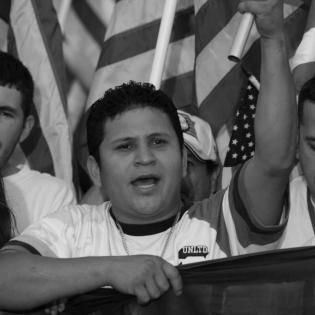Philanthropy as a Framework for Democracy
Photo credit: Immigrant.March by Elvert Barnes is licensed under CC by 2.0
Anticipatory Set
Ask the participants to list positive attributes of United States democracy that they believe are unique - characteristics that set the U.S. apart from other nations.
Video
Before viewing the video clip: Explain to the participants that the first speaker on the video, Dr. Stanley Katz, speaks about "The State" and "a relatively small State." His comments refer to the national government, not a state government. Ask them to listen for and take notes about unique attributes of the U.S. democracy.
Questions
- What are the three sectors of U.S. society?
- From viewing the video, what is your understanding of the definition of philanthropy? (Create a definition by consensus.)
- What examples of philanthropy were noted in the video? How do they fit the definition you created?
- How do the government and the non-profit (philanthropic) sector work together to address needs?
- What does it mean that a limited government creates philanthropy?
- Mike Farrell suggests that as citizens of the U.S. we are a "people of privelege." Do you agree? Why or why not? What do you think Farrell meant by the "duty of privilege is absolute integrity"?
- Is acting for the common good a responsibility of democratic citizens? Is it an opportunity for democratic citizens? Explain your responses.
- What does that "duty of privilege" look like in your life today and in the future?
Follow-up Activity
Share the Benjamin Franklin video clip and discussion guide for an example of a philanthropist who exercised his "duty of privilege" and enhanced the nature of U.S. democracy for future generations. Talk with your students about democracy and what it means today.
